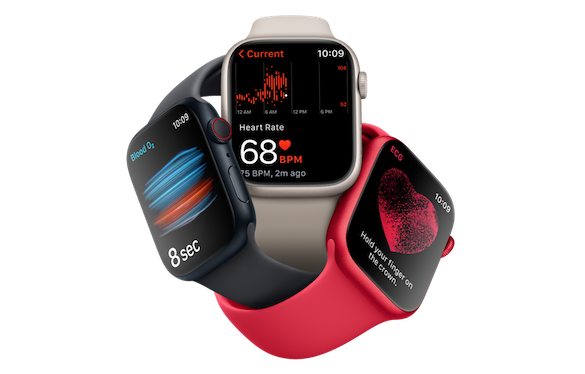The impact of COVID-19 on the life sciences industry is both acute and sustained. With an unknown timeline for disruptions, organizations are planning business activities for the short-term with decisions being made weekly and even daily. In periods of rapid change, potential compliance risks may arise for organizations with unestablished processes and controls. To help compliance professionals proactively mitigate changing business risks, this article explores the unique impact of COVID-19 on 4 key areas: HCP/O Engagements, Specialty Pharmacies & Patient Support, Patient Assistance Programs, and Product Sample Distribution.
What are the potential compliance implications?
HCP/O Engagements
One of the more significant impacts of COVID-19 to the life sciences industry has been the decline in face-to-face interactions. Although the use of virtual programs and channels has been widely accepted, they have not been deployed at the speed and scale that we’ve seen in the last few months.
Virtual channels can be an effective way to reach a remote audience. There may, however, be unique compliance risks and considerations, including reduced visibility and lack of controls in existing systems, policies and processes. Virtual interactions and programs are not exempt from the scrutiny of federal and state governments and manufacturers should closely examine newly established operations to mitigate potential compliance risks. Companies can consider enhancing existing processes and controls around virtual interactions by:
- Updating guidance for appropriate virtual interactions including updating contracts to account for Fair Market Value (FMV) of virtual programs (e.g., no travel and accommodations)
- Developing guidelines for providing food and beverage without company representatives present
- Documenting and tracking food and beverage consumption and virtual program attendees
- Reviewing promotional materials to ensure presentations are approved and appropriate
- Updating training for company representatives covering appropriate virtual interactions and behaviors
- Monitoring of virtual interactions to identify and mitigate risks such as off-label promotions
Specialty Pharmacies and Patient Support
Restrictions on movement have impacted the day-to-day lives of individuals, causing fluctuations in demand for drug products and supply chain challenges for traditional retail pharmacies. To ensure that product supply is available, companies may look to expand their specialty pharmacy network. While life sciences companies seek to step up and support patient needs, it is crucial to reinforce compliance safeguards and re-evaluate controls around prior authorizations and benefits investigations.
Additionally, patient drug adherence and education programs that offer services from clinical or nurse educators could see a spike in utilization during this time, as practitioners are not as readily available to see patients. Appropriate guidelines should be provided and reinforced around these types of interactions to ensure that behaviors do not inappropriately influence patients.
Patient Assistance Programs
Due to unprecedented economic uncertainty, and record numbers of unemployment, U.S. patients may subsequently lose their healthcare coverage and require assistance to continue their life-saving prescription drugs. Manufacturers may need to prepare to respond to these requests through existing Patient Assistance Programs (PAPs). The increased demand of PAPs may require additional co-pay, discounted or free drug programs to be established to accommodate additional patients. To ensure compliance, companies must ensure strict guidelines around the independence of these organizations and fully document patient eligibility for these programs.
Product Sample Distribution
As in-person F2F interactions have been cancelled, sales representatives are no longer hand-delivering product samples during their visit to a practitioner’s office. Instead, they are submitting product sample requisitions for Direct to Practitioners (DTP) or direct shipment of product samples. At the same time, manufacturers have seen an uptick in product sample requests from HCPs, seeking to support their patient needs. While such approaches may align with the needs of the current environment, adherence to compliance standards should be considered in the process, such as ensuring product samples are delivered directly to the appropriate and licensed HCPs with robust documentation to support drug product delivery.
How to ensure compliance during COVID-19 and prepare for what’s next?
As the industry continues to tackle the COVID-19 pandemic, it is crucial to ensure a compliance-centric approach to business operations. Manufacturers must continuously adapt and update their compliance infrastructure and ensure that it is robust enough to identify and mitigate risks as the regulatory environment and pandemic progresses. It is also fair to expect regulatory and policy changes in the coming months, making it crucial to be prepared.
In addition to the specific activity considerations highlighted above, the following are baseline considerations for continued compliance program effectiveness:
- Assess dynamic risk of current environment and shifting business activities
- Establish compliance governance model for agility
- Maintain documentation of critical decisions made through policies and procedures
- Communicate often and establish ongoing dialogue
- Conduct training as needed to provide clear guidance
With these controls and additional guidance from industry experts, manufacturers can take effective steps to ensure compliance during and post COVID-19. Lastly, it is important to acknowledge the scale and nature of this pandemic, which has the potential to change the industry indefinitely. While we can only wait to see what the future holds, this is poised to be a critical inflection point, leading to novel ways of engaging with customers and we must maintain vigilance of our ethical and compliance liabilities.
Further details and current research on the Life Sciences Industry can be found on IQVIA’s dedicated COVID-19 website. To contact IQVIA Commercial Compliance for information on how we can help you navigate the unique compliance considerations of COVID, email us at commercialcompliance@iqvia.com.

























